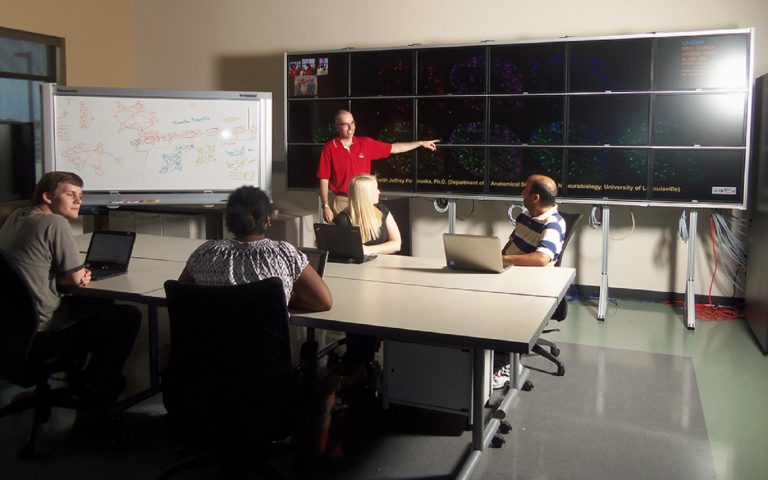
“The trick to having good ideas is not to sit around in glorious isolation and try to think big thoughts. The trick is to get more parts on the table.” – Steven Johnson
According to the National Academy of Engineering in the U.S., technological innovation has long been known as key to the nation’s success. Above all else, engineering is considered the driving force behind progress and innovation. “Indeed, the development and institutionalization of the engineering disciplines in U.S. universities provided much of the talent behind U.S. domination of world markets during the 20th century…” notes the NAE.
“Engineering disciplines integrate scientific principles with practically-oriented research, providing systems and processes that themselves create ways of acquiring new knowledge. This integration makes engineering critical to successful industrial innovation,” the NAE concludes.
For engineering to become truly revolutionary, it must go hand-in-hand with thorough, and often ground-breaking, academic research. So, if you’re considering the pursuit of a degree in engineering, selecting a university that provides world-class teaching from experienced professionals, as well as research themes and activities that are both cutting-edge and powerful, will ensure that you set off on the best possible foot towards a promising future in world of engineering.
The J.B. Speed School of Engineering, one of 12 leading colleges that together form the University of Louisville brand, is one of few global providers of engineering education to achieve the ideal balance of outstanding academics and meaningful research. Established in 1925 as a memorial to the late James Breckenridge Speed, the industrial trailblazer of the university’s home city, Louisville, Kentucky, the J.B. School of Engineering boasts a long tradition of high-quality academics.

Image courtesy of the J.B. Speed School of Engineering
With almost 100 years’ experience in the fast-evolving field, the School has earned a reputation for providing an accessible and experiential education, becoming a national leader among public metropolitan engineering institutions in research, scholarship, and creative activity.
“Since our founding…we have grown into one of the premier engineering schools in the country, dedicated to educational excellence, research, and technology transfer,” says Dr. John S. Usher, Dean of the J.B. Speed School of Engineering.
“The J.B. Speed School of Engineering is the first engineering school in the country to achieve dual-level accreditation of its B.S. and MEng programs, and offers nationally recognized graduate research programs at the M.S. and Ph.D levels,” he adds.
The School performs forward-facing research across a rich catalogue of engineering topics, including energy and sustainability, advanced manufacturing and logistics, engineering human health, cyber-enabled discovery, and an overwhelming strength that lies in materials engineering and bioscience. Led by faculty, staff and students in academic departments and research centers, the Speed School’s research is backed by numerous federal, State, and industry sponsors.
The Conn Center for Renewable Energy Research
Through this distinguished research center, the J.B. Speed School of Engineering is able to provide leadership, support, and of course, research on policy development within the renewable energy sector. The Center’s primary objective is to inspire the development of fresh, transformational concepts regarding global energy, as well as to facilitate the exchange of expertise and interest in all things sustainable and renewable in the hopes of one day producing clean, reliable, and affordable energy sources that will help save our world.

Image courtesy of the J.B. Speed School of Engineering
Facilities include:
- A multi-user advanced materials characterization facility for optical, structural, and chemical characterization of nanoscale materials
- Roll-to-roll manufacturing R&D facilities for solar cells; a continuous catalytic reactor for biofuels; and spray technology for lithium ion batteries
And the list goes on…
To top off everything the Conn Center has to offer, it also employs top scientists and engineers as informed theme leaders, instilling the most current knowledge in the next generation of creators.
The Micro Nano Technology Center
The Micro Nano Technology Center (MNTC) is a $30 million class 100/1000 cleanroom facility designed to accommodate the study of all things microelectronic, nanoelectronic, biotechnologic, and beyond. The Cleanroom is strategically divided into seven bays dedicated for photolithography, mask generation, wet processing (etching/cleaning/plating), dry etching, thin film deposition, high temperature processing and PDMS processing, and is used in a wide range of disciplines – from electrical, to mechanical, bio, chemical, and beyond.

Image courtesy of the J.B. Speed School of Engineering
Rapid Prototyping Center
The J.B. Speed School of Engineering’s Rapid Prototyping Center (RPC) is a recognized leader in advanced and additive manufacturing research, education and outreach.
Facilities include:
- Laser Sintering (LS): 3D Systems/DTM SLS 2500plus, High Temperature SLS 2500 CI
- Direct Metal Laser Sintering (DMLS): EOS M270 Dual Mode
- 3D Printing (3DP): ExOne M-Lab 3D printing research platform
And more.
In addition to all of this, the RPC offers design and fabrication services to members of the consortium, on top of applied research for government and industry sponsors, and supports Speed School undergraduate and graduate programs.
If engineering and research hold the key to societal, infrastructural, and economical progression, there’s no education provider more capable and revered than the J.B. Speed School of Engineering. As Dr. John S. Usher concludes, the J.B. Speed School of Engineering is “dedicated to educating engineers who will be the future thought leaders, discoverers and innovators for our society”.
Follow the J.B. Speed School of Engineering on Facebook, Twitter and LinkedIn
Liked this? Then you’ll love these…
How to become an employable Engineering graduate
6 graduate engineering schools in the U.S. with clear career pathways







